Winter 2022 Newsletter
Message from the Director:
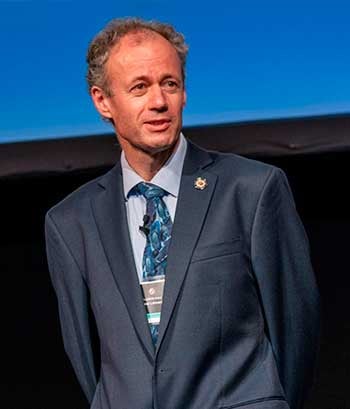 “If you look for the chemicals, you will find them, and if you don’t look, you only pretend like it’s not a problem…If you want to protect your citizens, you have to look.”
“If you look for the chemicals, you will find them, and if you don’t look, you only pretend like it’s not a problem…If you want to protect your citizens, you have to look.”
Dr. Rainer Lohmann, STEEP SRP Director addresses audience at FLUOROS GLOBAL Conference.
 Research Highlights
Research Highlights
Using a computational systems approach STEEP researchers explore possible links between exposure to endocrine disrupting chemicals & COVID-19 severity

Some studies suggest that more polluted neighborhoods have suffered greater mortality from COVID-19 than expected, and it’s not only due to more frequent infections. The same tendency was seen in a PFAS-polluted area in northern Italy. Such studies are often termed “ecological” as they refer to overall exposures and not to individual levels. Using digital linkage to stored information on Danish residents, a study contributed important information on the possible linkage between PFAS exposure and COVID-19. Read More…
Early development PFOS exposure may affect behavior and Alzheimer’s disease biomarkers in middle-aged mice, according to findings by STEEP researchers

STEEP researcher Angela Slitt, former STEEP trainee Emily Marques, and colleagues from URI investigated a prevalent PFAS compound as a potential risk factor for Alzheimer’s disease. In a study published in Neurotoxicology, the scientists exposed mice and live cultured human cells to perfluorooctanesulfonic acid (PFOS) and assessed its effects on Alzheimer’s disease biomarkers and mouse behavior. PFOS, one of the most widespread PFAS compounds, was commonly used in products like stain-resistant fabrics, food packaging, and fire-fighting foams. It has been detected throughout the environment and in human blood. Read More…
STEEP researchers use juvenile seabirds to conduct first study on the tissue-specific behavior of ether-based PFAS
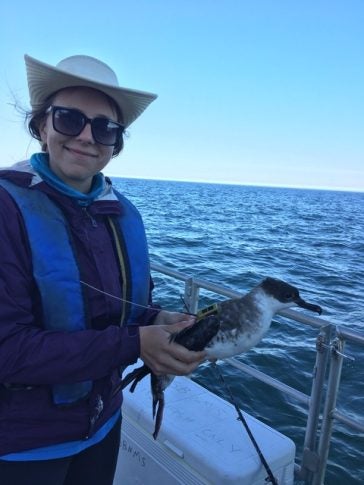
One of the pressing issues in PFAS research and regulations is the recognition that few of the thousands of individual PFAS compounds have been studied in detail. STEEP graduate Anna Robuck, STEEP researcher Rainer Lohmann, and a team of coauthors recently published a study in Environmental Science & Technology Letters. In it, the researchers characterize the behavior of 36 legacy and emerging PFAS compounds in seabird tissues. The group collected tissue samples from juvenile seabirds, including herring gulls, royal terns, and brown pelicans, found around Massachusetts Bay, Narragansett Bay, and the Cape Fear River Estuary. Read More…
STEEP researchers aim to better understand PFAS transport and susceptibility of drinking water supplies

STEEP Project 1 researchers, led by Dr. Elsie Sunderland, and USGS collaborated to collect extensive PFAS data from a Cape Cod Superfund site impacted by historic AFFF contamination with the goal of better understanding how geochemical and hydrological factors affect PFAS transport and transformation and lead to susceptibility of drinking water supplies to PFAS contamination. Read More…
New machine learning model to interpret PFAS data
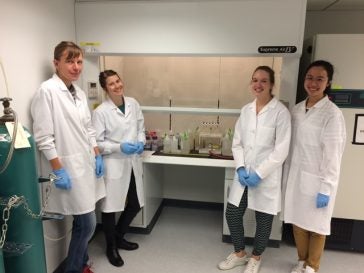
Private wells contaminated by PFAS can be a substantial source of PFAS exposure but monitoring initiatives are costly, time consuming, and tend to be conducted on a more ad hoc basis. STEEP researchers from the Sunderland laboratory group developed a statistical approach to help prioritize sampling locations for private wells by analyzing the hydrological proximity of wells to different PFAS sources as well as environmental characteristics likely to affect PFAS transport. Read More…
 Events
Events
FLUOROS Global 2021: Worldwide Gathering of PFAS Community Examined Science Solutions for “Forever” Chemicals

Leading experts from around the world came together at the STEEP initiated and supported gathering in Fall 2021 to share their latest findings and progress on science-based solutions for a specific kind of chemical pollution – PFAS. FLUOROS GLOBAL 2021, an annual gathering for scientists to join with community members in dialogue on PFAS issues, drew more than 335 attendees from at least 18 countries and Puerto Rico to its hybrid (in-person and virtual) symposium. Read More…
December 2021 Plymouth Board of Health presentation

On Wednesday, December 8, 2021, Laurel Schaider (CEC co-lead, Project 4) was invited to give a presentation to the Plymouth, MA, Board of Health, titled “PFAS: What are they and why are they a concern?” This presentation provided an overview of PFAS sources, exposures, and health effects, with a focus on Massachusetts drinking water supplies. The presentation also included key findings from STEEP’s study of PFAS in Cape Cod private wells and resources for residents, including tips cards developed by STEEP’s Research Translation Core. Read More…
 Program Updates
Program Updates
STEEP Progress on the PFAS Challenge: Protecting Human and Environmental Health – Fall 2021 Progress
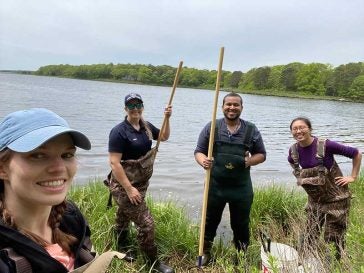
An overview is available of STEEP’s Year 4 progress through research that aims to better understand the pathways of PFAS contamination from entry into the environment through groundwater contamination, dispersal through the food web, and distribution to vulnerable human populations during early development, in part through breast milk, and highlights of the ongoing work of the STEEP projects and cores in preparing the next generation of interdisciplinary emerging contaminant researchers. Read More…
Podcast on ocean health, part of the Back to Blue initiative by Economist Impact and the Nippon Foundation, features STEEP researcher Elsie Sunderland in first episode
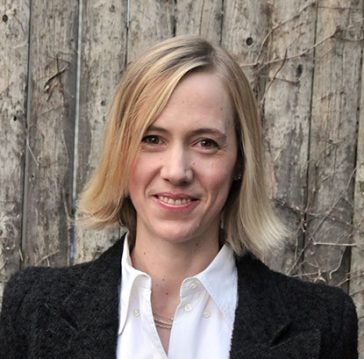
A new podcast on ocean health invited STEEP researcher Elsie Sunderland to speak about chemical pollution in the ocean. The podcast is part of Back to Blue, an initiative by the Economist Impact and The Nippon Foundation that aims to address ocean issues with sustainable and evidence-based solutions. Sunderland, the Gordon McKay Professor of Environmental Chemistry at Harvard University, was asked to comment on the scope and extent of chemical pollution issues in the ocean. Read More…
 Community News
Community News
STEEP private well testing on Cape Cod

In Fall 2021, the STEEP Community Engagement Core collected well water samples from over 65 private well owners on Cape Cod. Due to the COVID-19 pandemic, instead of having study team members travel to participant homes, the CEC team distributed well water sample kits and instructions at central locations throughout the Cape so that well owners could collect their own samples. CEC distributed kits and held drop-off events at the public libraries in Eastham, Harwich, and Mashpee, as well as at Cape Cod Community College. Read More…
STEEP researchers Rainer Lohmann and Laurel Schaider present research updates and recommendations as testimony to the Massachusetts PFAS Interagency Task Force
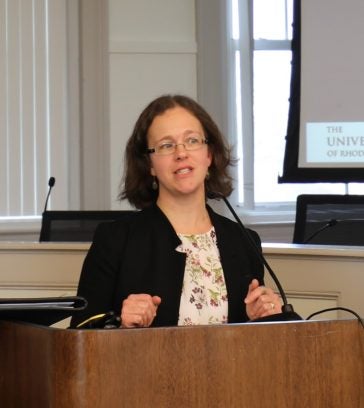
On July 6, 2021, STEEP researchers Rainer Lohmann and Laurel Schaider gave testimony at a public hearing held by the Massachusetts PFAS Interagency Task Force. The STEEP PI and co-lead spoke to the task force about their recent research on PFAS effects and testing as well as their recommendations for action. Read More…
Dr. Philippe Grandjean provides testimony to Danish Parliament on lowering PFAS drinking water limit
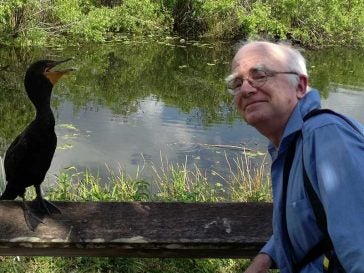
In 2020, an EU agency called the European Food Safety Authority (EFSA) published its risk assessment of PFOS, PFOA, and two other common PFAS. A recommendation only, it is up to the EU member states to act on the conclusions. The tolerable weekly intake limit is defined by EFSA as 4.4 ng/kg body weight per week. This complex expression is based on the need to protect the next generation against immunotoxic effects of prenatal and early postnatal exposure to the PFAS. Read More…
Awards and Achievements
Dr. Philippe Grandjean awarded honorary doctoral degree

Honorary doctoral degree awarded by Katholieke Universiteit Leuven, a research university in the city of Leuven, Belgium. Grandjean is an adjunct faculty member in the University of Rhode Island’s School of Pharmacy and co-lead of the NIEHS-funded URI Superfund Research Program Center and serves as Professor and Chair of Environmental Medicine at the University of Southern Denmark. Read more on the KU Leuven website
Dr. Erasme Uyizeye awarded Diversity Fellowship by NIEHS

Dr. Erasme Uyizeye, Academic Data Analyst at University System of New Hampshire was awarded a supplemental fellowship to increase diversity in NIEHS. Dr. Uyizeye’s project will provide a comparative understanding of the occurrence, bioaccumulation, fate and effects of PFAS in insect communities between various point sources in Maine waterways. Read more
STEEP Trainee Accomplishments
STEEP Training Core Coordinator Alicia Crisalli awarded the URI College of Pharmacy William C. Potter Prize in Chemistry
 Alicia Crisalli was awarded the URI College of Pharmacy William C. Potter Prize. The award, which is part of an endowment, is given annually to a Ph.D. student selected by a College of Pharmacy committee for academic achievement in chemistry. Alicia’s Ph.D. research focuses on the mechanisms of disease through protein binding and interference in DNA repair. Read more
Alicia Crisalli was awarded the URI College of Pharmacy William C. Potter Prize. The award, which is part of an endowment, is given annually to a Ph.D. student selected by a College of Pharmacy committee for academic achievement in chemistry. Alicia’s Ph.D. research focuses on the mechanisms of disease through protein binding and interference in DNA repair. Read more
STEEP trainee Matt Dunn wins K.C. Donnelly Externship Award to work on passive samplers with Chicago water treatment technology company Cyclopure, Inc.
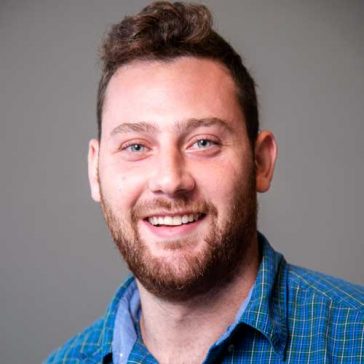 Matt Dunn is a 2021 awardee of the K.C. Donnelly Externship Award Supplement. The award was established by the Superfund Research Program of the National Institute of Environmental Health Sciences (NIEHS) in memory of K.C. Donnelly, an environmental health researcher and dedicated mentor to students. Read more
Matt Dunn is a 2021 awardee of the K.C. Donnelly Externship Award Supplement. The award was established by the Superfund Research Program of the National Institute of Environmental Health Sciences (NIEHS) in memory of K.C. Donnelly, an environmental health researcher and dedicated mentor to students. Read more
STEEP trainee Bridger Ruyle receives K.C. Donnelly Externship Award to study PFAS from aqueous film-forming foams in mice with National Toxicology Program scientist
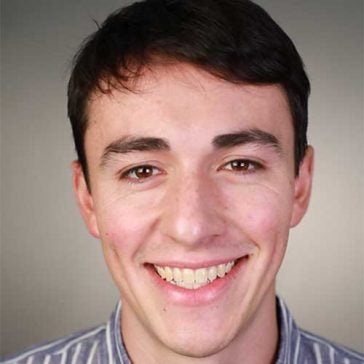 Bridger Ruyle is a 2021 awardee of the K.C. Donnelly Externship Award Supplement. The award was established by the Superfund Research Program of the National Institute of Environmental Health Sciences (NIEHS) in memory of K.C. Donnelly, an environmental health researcher and dedicated mentor to students. Read more
Bridger Ruyle is a 2021 awardee of the K.C. Donnelly Externship Award Supplement. The award was established by the Superfund Research Program of the National Institute of Environmental Health Sciences (NIEHS) in memory of K.C. Donnelly, an environmental health researcher and dedicated mentor to students. Read more
Former STEEP trainee Maya Morales-McDevitt receives ORISE fellowship to work at EPA and James Corless Prize in Marine Chemistry
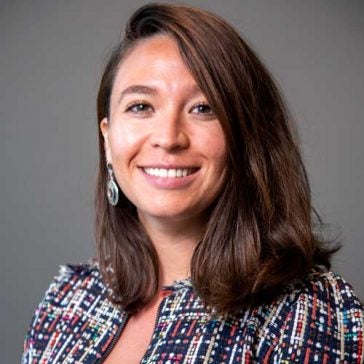 Maya Morales-McDevitt has been selected to receive the James Corless Prize in Marine Chemistry. This award is given annually to a graduate student selected by a committee appointed by the dean of the Graduate School of Oceanography. Maya also recently received an Oak Ridge Institute for Science and Education (ORISE) fellowship from the EPA. Read more
Maya Morales-McDevitt has been selected to receive the James Corless Prize in Marine Chemistry. This award is given annually to a graduate student selected by a committee appointed by the dean of the Graduate School of Oceanography. Maya also recently received an Oak Ridge Institute for Science and Education (ORISE) fellowship from the EPA. Read more
Voices From STEEP
“Our skin is actually pretty good at absorbing PFAS molecules, although that ability lessens if the PFAS is bound to other substances, like microplastics…It’s not as bad as drinking (PFAS-contaminated) water, but it’s certainly close,” –Rainer Lohmann, Environmental Health News. Read more
“You can remove PFAS from well water with filters. Unfortunately, there’s no way to remove PFAS from fish,” –Laurel Schaider, Cape Cod Times
“While we’ve made progress in understanding the contribution of drinking water as an exposure source, the relative importance of these other sources is basically not understood … We don’t need these chemicals in most of the consumer products, in my opinion and the opinion of most of my colleagues.” –Elsie Sunderland, The Hill. Read more
“We should not do this experiment again on humanity. Industry has hidden the dangers of PFAS from us for decades … We should not allow similar secrecy to happen again.” –Philippe Grandjean, Harvard T.C. Chan School of Public Health News. Read more
Read the 2025 Issue 1 Newsletter
Read the 2024 Issue 2 Newsletter
Read the 2024 Issue 1 Newsletter
Read the Spring/Summer 2023 Newsletter
Read the Winter 2023 Newsletter
Read the Spring 2021 Newsletter

